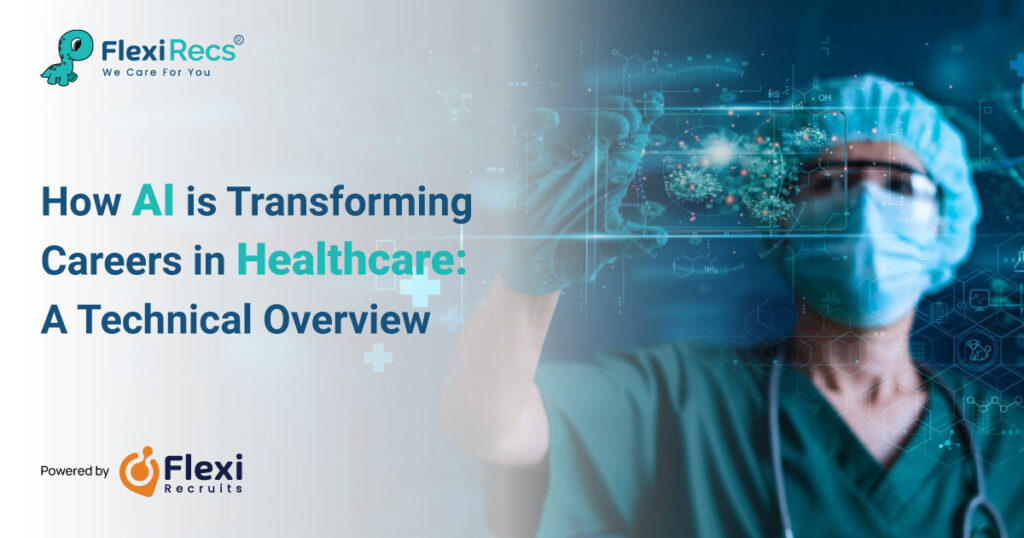How AI is Transforming Careers in Healthcare: A Technical Overview

Artificial intelligence (AI) has grown into an important development in many fields, making the world more and more dependent on emerging technologies. Human resources have changed a lot, and AI promises big steps to improve efficiency, patient care, and, surprisingly, opportunities for employment in the healthcare field. This blog will talk about how AI is changing circumstances for care workers and how this is good news for the future of this essential role. Let’s begin.
AI in Healthcare
When AI was first used in healthcare, it changed everything. AI decreases processes, cuts down on mistakes, and ultimately improves outcomes. That’s true for everything from diagnosis tools to treatment plans. In the field of care work, AI is not meant to replace human touch. However, it aims to help care workers do their jobs better. Example: Have intelligent AI assistance in healthcare whenever someone you know suffers from cancer. A customised treatment strategy is suggested after studying your specific information. Doctors can choose the best direction for your situation faster. AI doesn’t replace human care, but it’s like an intelligent helper for physicians, making treatment easier and improving outcomes.
Creating Opportunities
The latest research from the Institute for the Future of Work (IFOW), Imperial College London, and Warwick Business School shows that more than 78% of UK businesses that have adopted AI and robotic technologies have created new jobs. There is a false belief that AI is going to put people out of work. This number shows that AI can make the job market grow and expand. AI-driven technologies for diagnosis allow doctors to focus on complex patients. It increases demand for AI professionals, technicians, and healthcare data analysts, indicating how AI improves patient care and adds healthcare job opportunities.
Job Candidates
One great example of this is how AI is being used to improve the healthcare business. Since technology is becoming increasingly important in healthcare, businesses are creating new jobs, which helps the general growth of the workforce. Not only do these jobs demand technical knowledge, but they also often require a mix of scientific and people skills. AI streamlines the hiring process by analysing resumes, identifying relevant skills, and matching candidates with suitable roles. Automated screening enables recruiters to efficiently sift through large volumes of applications, facilitating quicker and more accurate candidate selection.
Quality of jobs
Using AI to do jobs has contributed to better-quality jobs, which is another positive finding in the study. A shocking 69% of businesses said that AI has improved job quality, which means that care workers will have more important and satisfying jobs in the future. It’s not about replacing people with machines; it’s about giving them tools that make their skills better. Healthcare artificial intelligence (AI) reduces typical procedures so experts can focus on complicated, patient-centric work, improving work quality. It increases productivity, accuracy, and healthcare quality, making employment more satisfying and valuable.
Skill development
Using AI in healthcare has made learning new skills more necessary to keep up with changing technology needs. According to a report, 83% of healthcare organisations realise they need to learn new skills because AI is being used so much. This trend is an excellent opportunity for people looking for work in the healthcare field to improve their skills and stay competitive in an industry that is always changing because of new technology. As additional medical practices use artificial intelligence (AI) apps for diagnosis, planning treatments, and data analysis, those who adapt to these new technologies can help patients get better care and progress the healthcare industry upward.
Addressing Concerns
It’s clear that AI is changing healthcare, and while there are some doubts about job loss, there are also a lot of new opportunities. Business claimed 67% of healthcare organisations claim that AI is creating jobs at the same time that jobs are being lost. Choosing AI, especially through platforms like Flexi Recs, a skilled AI-powered healthcare job board, makes hiring easier by connecting businesses with qualified healthcare workers. Using AI not only makes hiring easier, but it also moves the industry forward, encouraging growth, new ideas, and the ability to react to changing healthcare environments. Instead of being afraid of job changes, the healthcare industry should see these changes as an opportunity for advancement.
Care Workers
Going into the future, the healthcare industry, especially care jobs, appears to be an exciting employment sector. The fact that the sector aims to spend heavily on AI and robots provides an overview of a strong and growing labour market. There has never been a better moment to pursue a career in health and social care.
Summary
Are you curious how AI will impact healthcare in 2024? Putting it all together, AI is not taking over the jobs of care workers, alternatively, it is changing the way they do their jobs. In the age of AI, care work has a huge amount of opportunity for growth and fulfilment because it creates jobs, makes jobs better, and encourages people to learn new skills. Flexi Recs, an advanced AI-powered job platform, optimises recruiting and connects you with competent healthcare professionals.
Recent Post
Dont Hesitate To Contact Us
If you have any queries related to our service or require further assistance, feel free to contact us

About Flexi Recruits
Our team has been building high-quality platforms for individuals who are eager to learn new skills and explore new opportunities
through their passion for work.
Quick Links
Privacy Overview
| Cookie | Duration | Description |
|---|---|---|
| cookielawinfo-checkbox-analytics | 11 months | This cookie is set by GDPR Cookie Consent plugin. The cookie is used to store the user consent for the cookies in the category "Analytics". |
| cookielawinfo-checkbox-functional | 11 months | The cookie is set by GDPR cookie consent to record the user consent for the cookies in the category "Functional". |
| cookielawinfo-checkbox-necessary | 11 months | This cookie is set by GDPR Cookie Consent plugin. The cookies is used to store the user consent for the cookies in the category "Necessary". |
| cookielawinfo-checkbox-others | 11 months | This cookie is set by GDPR Cookie Consent plugin. The cookie is used to store the user consent for the cookies in the category "Other. |
| cookielawinfo-checkbox-performance | 11 months | This cookie is set by GDPR Cookie Consent plugin. The cookie is used to store the user consent for the cookies in the category "Performance". |
| viewed_cookie_policy | 11 months | The cookie is set by the GDPR Cookie Consent plugin and is used to store whether or not user has consented to the use of cookies. It does not store any personal data. |